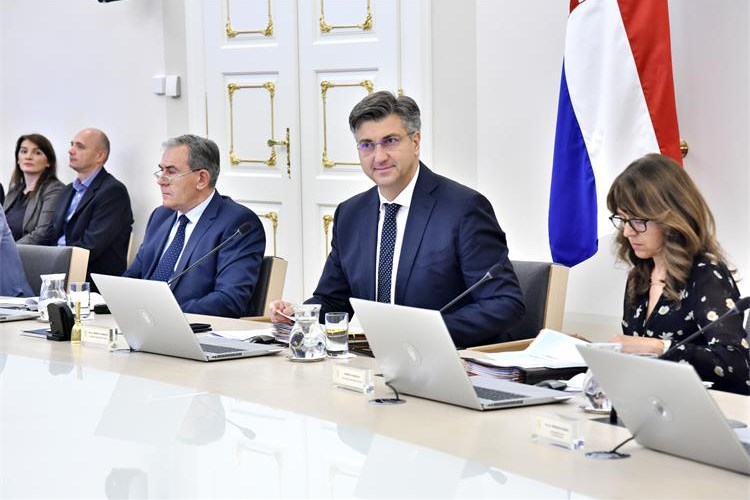- Published: 10.10.2019.
PM: New calendar of public holidays, memorial days will clear doubts, vagueness
Prime Minister Andrej Plenkovic on Thursday presented at a cabinet meeting a new calendar of public holidays and memorial days, saying that he is convinced that it would be more appropriate and would remove any doubts, confusion and vagueness.
Plenkovic presented a list of proposed new public holidays according to which Statehood Day would be 30 May and not 25 June as is the case now. That is the day that the first multi-party democratic parliament was convened in 1990, Plenkovic recalled, and that would reinstate Statehood Day to the date it was celebrated until 2001.
Statehood Day to be observed on 30 May again
"That day is a sort of start of the adoption of a series of key acts that led us to independence, sovereignty and, finally, international recognition. It is 30 May in fact that is a sort of day of democracy, we can freely call that, the most referential and most relevant, and at the same time it was accepted very well among the Croatian people," he underscored.
"The idea is that in 2020, on the 30th anniversary of that first 30 May, we put things in the right place. We believe that 30 May as Statehood Day will make Croatian citizens respect the state," he claimed.
New holiday on 18 November - Remembrance Day for Homeland War Victims
The second change is that 18 November will become the Remembrance Day for Homeland War Victims and Remembrance Day for the Victims of Vukovar and Skabrnja.
"In this way I think that in the future context of marking that day we will have a very clear and essential triangle - Statehood Day on 30 May, Victory and Homeland Thanksgiving Day and Croatian Veterans Day on 5 August and, finally, 18 November as Remembrance Day for Homeland War Victims and Remembrance Day for the Victims of Vukovar and Skabrnja," said Plenkovic.
He added that all three dates are emotional with regard to how they are perceived by the Croatian people and citizens, and that these holidays appropriately position those key dates that mark the emergence of the modern and sovereign Croatian state.
Plenkovic underscored that the proposed bill modifies several memorial days and will introduce changes, adding that memorial days are not non-working days. January 15 will, in addition to commemorating the Day of International Recognition, also be the Day of the Peaceful Reintegration of Croatia's Danube River Region and 9 May will mark Europe Day and Victory over Fascism Day.
Independence Day no longer a public holiday but memorial day
Independence Day would, according to the proposal, be marked on 25 June, which was celebrated as Statehood Day until now, and 8 October would be Croatian Parliament Day, while 23 August would be marked as European Day of Remembrance for the Victims of all Totalitarian and Authoritarian Regimes - Nazism, Fascism and Communism.
Presenting the proposal, Plenkovic said that the number of public holidays would not increase and would remain at 13 which, he said, is important from the economic aspect, because of the impact on the economy, GDP growth and everything that entails.
"We consider this distribution of public holidays and memorial days to regulate better and more precisely what occurred to us and the way that should stay in the future," Plenkovic concluded.
PM appeals to school unions to return to dialogue
Prime Minister Andrej Plenkovic said on Thursday the strike which began in elementary and high schools today was "absurd and unnecessary" and appealed to unions to be reasonable and return to dialogue.
"We talked with the unions, there was conciliation. We offered them a 2% pay rise this year and as much next year. For some unfathomable reason, the unions didn't accept that," he said at the start of a cabinet meeting.
Instead of accepting the government's offer, they insisted on changing the job complexity index for teachers, which is regulated by the government, Plenkovic said.
There was no justified reason for this strike, he said, adding that his government had carried out an education reform and introduced a new methodology which should better prepare students for the labour market.
He called the union demands "fabricated, absurd and unnecessary," saying that neither the basic nor the branch collective agreement had expired.
"This demand is about changing the (job complexity) index, which is regulated by government decree. Going on strike when you are offered 4% instead of the 6% you are asking for seems a little exaggerated. This is no will for a compromise but for some sort of obstruction. We distinguish between what is logical and normal and what seems exaggerated," Plenkovic said.
We are open for talks and I hope reason will prevail, he added.
Text: Hina
